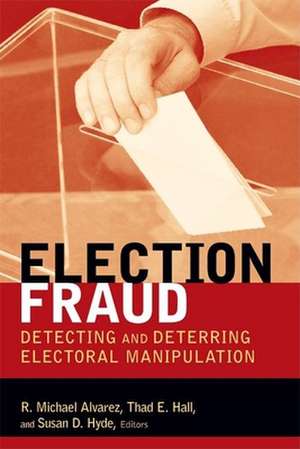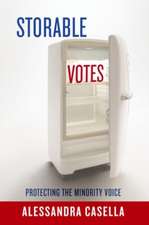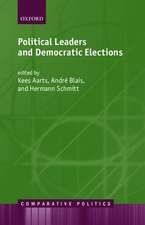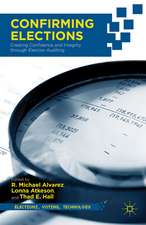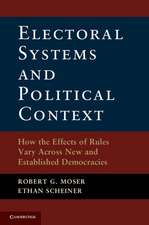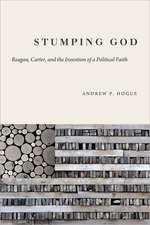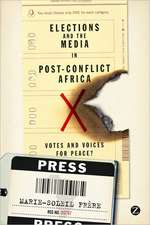Election Fraud: Detecting and Deterring Electoral Manipulation: Brookings Series on Election Administration and Reform
Editat de R. Michael Alvarez, Thad E. Hall, Susan D. Hydeen Limba Engleză Paperback – 15 mai 2008
Allegations of fraud have marred recent elections around the world, from Russia and Italy to Mexico and the United States. Such charges raise fundamental questions about the quality of democracy in each country. Yet election fraud and, more broadly, electoral manipulation remain remarkably understudied concepts. There is no consensus on what constitutes election fraud, let alone how to detect and deter it. E lection Fraud: Detecting and Deterring Electoral Manipulation brings together experts on election law, election administration, and U.S. and comparative politics to address these critical issues. The first part of the book, which opens with an essay by Craig Donsanto of the U.S. Department of Justice, examines the U.S. understanding of election fraud in comparative perspective. In the second part of the book, D. Roderick Kiewiet, Jonathan N. Katz, and other scholars of U.S. elections draw on a wide variety of sources, including survey data, incident reports, and state-collected fraud allegations, to measure the extent and nature of election fraud in the United States. Finally, the third part of the book analyzes techniques for detecting and potentially deterring fraud. These strategies include both statistical analysis, as Walter R. Mebane, Jr. and Peter Ordeshook explain, and the now widespread practice of election monitoring, which Alberto Simpser examines in an intriguing essay.
Preț: 259.46 lei
Nou
Puncte Express: 389
Preț estimativ în valută:
49.66€ • 51.65$ • 41.62£
49.66€ • 51.65$ • 41.62£
Carte disponibilă
Livrare economică 20 februarie-06 martie
Preluare comenzi: 021 569.72.76
Specificații
ISBN-13: 9780815701392
ISBN-10: 081570139X
Pagini: 255
Dimensiuni: 152 x 229 x 19 mm
Greutate: 0.38 kg
Editura: Brookings Institution Press
Colecția Brookings Institution Press
Seria Brookings Series on Election Administration and Reform
ISBN-10: 081570139X
Pagini: 255
Dimensiuni: 152 x 229 x 19 mm
Greutate: 0.38 kg
Editura: Brookings Institution Press
Colecția Brookings Institution Press
Seria Brookings Series on Election Administration and Reform
Notă biografică
R. Michael Alvarez is professor of political science at the California Institute of Technology and codirector of the Caltech-MIT Voting Technology Project. His books include Hard Choices, Easy Answers: Values, Information, and American Public Opinion, written with John Brehm (Princeton, 2002). Thad E. Hall is assistant professor of political science and a research fellow in the Institute of Public and International Affairs at the University of Utah.Together with Alvarez, he wrote Poiint, Click, and Vote: The Future of Internet Voting (Brookings, 2004). Susan D. Hyde is assistant professor of political science at Yale University. She has served as an election observer with the Carter Center and the Organization for Security and Cooperation in Europe.
Descriere
Allegations of fraud have marred recent elections around the world, from Russia and Italy to Mexico and the United States. Such charges raise fundamental questions about the quality of democracy in each country. Yet election fraud and, more broadly, electoral manipulation remain remarkably understudied concepts. There is no consensus on what constitutes election fraud, let alone how to detect and deter it. E lection Fraud: Detecting and Deterring Electoral Manipulation brings together experts on election law, election administration, and U.S. and comparative politics to address these critical issues. The first part of the book, which opens with an essay by Craig Donsanto of the U.S. Department of Justice, examines the U.S. understanding of election fraud in comparative perspective. In the second part of the book, D. Roderick Kiewiet, Jonathan N. Katz, and other scholars of U.S. elections draw on a wide variety of sources, including survey data, incident reports, and state-collected fraud allegations, to measure the extent and nature of election fraud in the United States. Finally, the third part of the book analyzes techniques for detecting and potentially deterring fraud. These strategies include both statistical analysis, as Walter R. Mebane, Jr. and Peter Ordeshook explain, and the now widespread practice of election monitoring, which Alberto Simpser examines in an intriguing essay.
